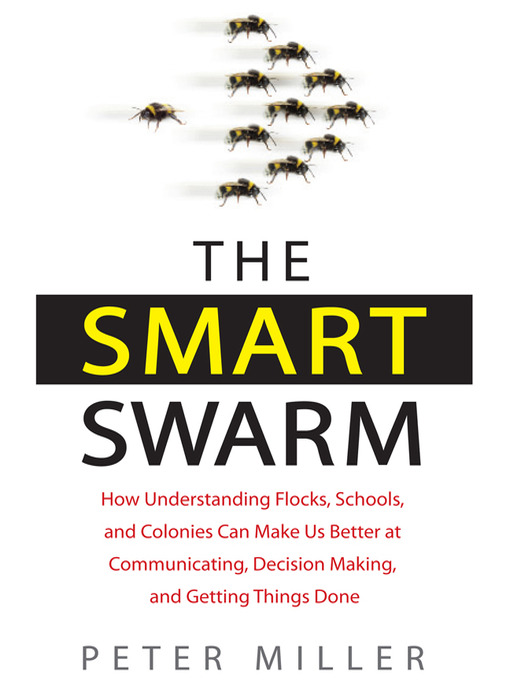The Smart Swarm
How Understanding Flocks, Schools, and Colonies Can Make Us Better at Communicating, Decision Making, and Getting Things Done
By studying ant colonies' simple governing rules, computer scientists have written programs to streamline factory processes, telephone networks, and truck routes. Termites have inspired climate control solutions, and the U.S. military is developing a team of robots that behaves like a school of fish. Groups in nature are the real specialists because they've evolved strategies over millions of years to cope with uncertainty, complexity, and change—the same challenges that make our lives and businesses difficult today.
Leading scientists in fields from biology to physics, social psychology, and business management are all studying smart swarms to unlock their secrets, and Peter Miller takes us on a lively tour to show us how we can, too.
A fascinating journey from the critter to the corporation, The Smart Swarm is an eye-opening look at small-scale phenomena with big implications for us all.
-
Creators
-
Publisher
-
Release date
December 17, 2010 -
Formats
-
OverDrive Listen audiobook
- ISBN: 9781469002262
- File size: 250788 KB
- Duration: 08:42:28
-
-
Languages
- English
-
Reviews
-
Publisher's Weekly
March 1, 2010
Insects are social creatures, perhaps even more social—in the strict scientific sense—than humans since they lack such socially obstructing attributes as ego, personality, and opinion. Miller, senior editor at National Geographic
, examines hives, mounds, colonies, and swarms, whose complex systems of engagement and collective decision making have catalyzed innovations in engineering and can suggest solutions to such problems as climate change. The sophisticated system of decentralized interdependence exhibited by termites invites a lesson on how to respond to emergencies, while the chemical-based communications among African ants helped officials at Southwest Airlines define their seating policy. Insects, birds, and fish variously demonstrate the plausibility and success of disorganization leading to self-organization and leaderless processes. Adding understanding to the dark side of group dynamics and, inevitably, mob behavior is the study of locusts, innocuous until they become part of a crowd. Miller informs, engages, entertains, and even surprises in this thought-provoking study of problem making and problem solving, and through the comparison of human and insect scenarios, shows how social cues and signals can either bring about social cooperation or destruction.
-
Loading
Why is availability limited?
×Availability can change throughout the month based on the library's budget. You can still place a hold on the title, and your hold will be automatically filled as soon as the title is available again.
The Kindle Book format for this title is not supported on:
×Read-along ebook
×The OverDrive Read format of this ebook has professional narration that plays while you read in your browser. Learn more here.

